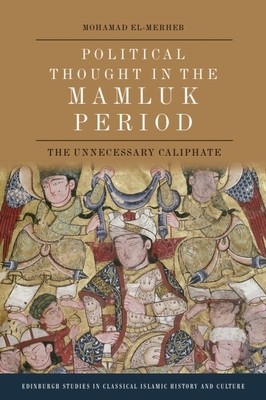
- We will send in 10–14 business days.
- Author: Mohamad El-Merheb
- Publisher: Edinburgh University Press
- Pages: 224
- ISBN-10: 1474479642
- ISBN-13: 9781474479646
- Format: 15.6 x 23.4 x 1.4 cm, hardcover
- Language: English
- SAVE -10% with code: EXTRA
Reviews
Description
Political Thought in the Mamluk Period covers the political thought produced by legal theorists, jurists, judges and administrators of the late Ayyubid and early Mamluk period as they tackled a central question: how best to govern their communities. It proposes a taxonomy of the main themes and concerns of this political thought under the three ideals of the rule of law, limited government and legitimate delegation of power. Further, it recommends a contextualist approach for interpreting Islamic political texts based on their narrow social, intellectual and political contexts.
EXTRA 10 % discount with code: EXTRA
The promotion ends in 19d.00:36:12
The discount code is valid when purchasing from 10 €. Discounts do not stack.
- Author: Mohamad El-Merheb
- Publisher: Edinburgh University Press
- Pages: 224
- ISBN-10: 1474479642
- ISBN-13: 9781474479646
- Format: 15.6 x 23.4 x 1.4 cm, hardcover
- Language: English English
Political Thought in the Mamluk Period covers the political thought produced by legal theorists, jurists, judges and administrators of the late Ayyubid and early Mamluk period as they tackled a central question: how best to govern their communities. It proposes a taxonomy of the main themes and concerns of this political thought under the three ideals of the rule of law, limited government and legitimate delegation of power. Further, it recommends a contextualist approach for interpreting Islamic political texts based on their narrow social, intellectual and political contexts.


Reviews